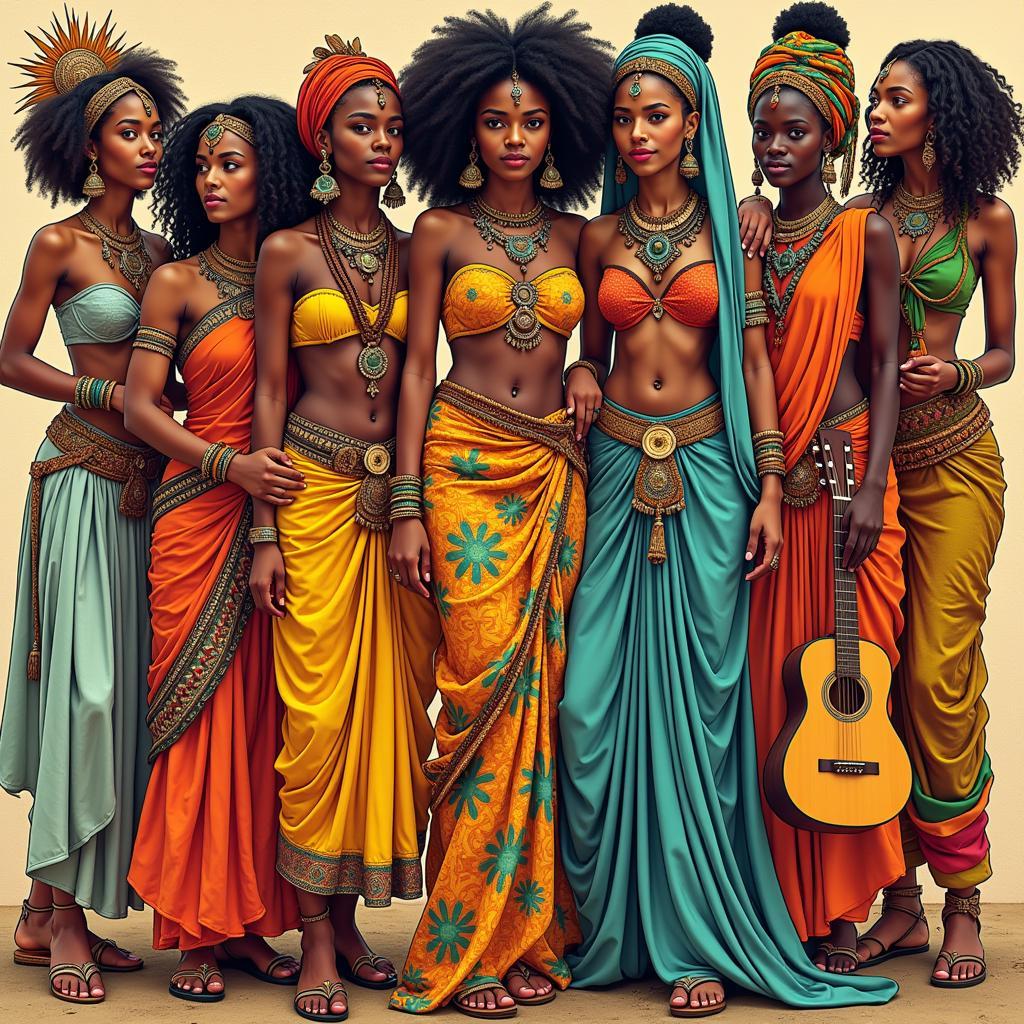Unmasking the African Holocaust: A History of Suffering and Resilience
The term “African Holocaust” refers to a series of historical tragedies and injustices inflicted upon the African people, often overlooked in mainstream narratives. From the transatlantic slave trade to colonial atrocities and modern-day conflicts, the continent has endured immense suffering. This article aims to explore the various dimensions of this complex and often ignored history.
The transatlantic slave trade, spanning centuries, forcibly uprooted millions of Africans from their homes, tearing apart families and communities. The conditions of the Middle Passage were horrific, with countless perishing at sea. Those who survived faced a brutal life of enslavement in the Americas. This dark period left an indelible mark on the African psyche and continues to impact the continent today. You can read more about the portrayal of these events in african holocaust movie.
The Scars of Colonialism: Exploitation and Oppression
European colonialism further exacerbated the suffering of the African people. The scramble for Africa in the 19th century saw European powers carve up the continent, exploiting its resources and subjugating its people. Colonial rule was often marked by violence, forced labor, and the suppression of African cultures and traditions. This period of exploitation laid the groundwork for many of the challenges facing Africa today.
The Congo Free State: A Case Study in Brutality
King Leopold II of Belgium’s reign of terror in the Congo Free State stands as a particularly horrific example of colonial brutality. Millions of Congolese were killed and mutilated in the pursuit of rubber and other resources. This period represents one of the darkest chapters in African history.
Beyond the Slave Trade and Colonialism: Modern Conflicts and Challenges
The legacy of slavery and colonialism continues to cast a long shadow over Africa. Post-colonial conflicts, fueled by ethnic tensions, political instability, and economic inequality, have claimed countless lives and displaced millions. These conflicts often involve the exploitation of children as soldiers, a tragic reality depicted in films documented in the african child soldier movie list. Understanding the historical context is crucial to addressing the root causes of these ongoing challenges. For a deeper understanding of this history, exploring resources like african holocaust facts can be invaluable.
The Rwandan Genocide: A Modern Tragedy
The Rwandan genocide of 1994 stands as a stark reminder of the fragility of peace and the devastating consequences of unchecked hatred. In a span of just 100 days, an estimated 800,000 people were slaughtered. This horrific event highlights the urgent need for international intervention and conflict resolution in Africa.
Remembering and Learning from the Past
Acknowledging and understanding the “African holocaust” is essential for building a more just and equitable future. By confronting these difficult truths, we can work towards healing and reconciliation. The role of cinema in documenting and sharing these stories is also crucial, and resources like african cinema history can provide valuable insights. The experiences of african jews also add another layer to the complex tapestry of African history and identity.
Professor Adeola Oladipo, a renowned historian specializing in African studies, states, “The African holocaust is not just a historical event, it’s an ongoing struggle for recognition and justice. We must amplify the voices of those who have suffered and work towards a future where such atrocities are never repeated.”
Dr. Chika Eze, a leading scholar on post-colonial Africa, adds, “Ignoring this history only perpetuates the cycle of violence and injustice. We must learn from the past to build a better future for all.”
In conclusion, the “African holocaust” encompasses a range of historical tragedies that have shaped the continent. By understanding this complex history, we can work towards a more just and peaceful future for Africa.
FAQ
- What does the term “African holocaust” refer to?
- How did colonialism impact Africa?
- What was the Congo Free State?
- What is the significance of the Rwandan genocide?
- How can we learn from the past to build a better future for Africa?
- What are some resources for further learning about this topic?
- How can I support organizations working to address the ongoing challenges in Africa?
If you need assistance, please contact us at: +255768904061, kaka.mag@gmail.com or visit us at Mbarali DC Mawindi, Kangaga, Tanzania. We have a 24/7 customer service team.

